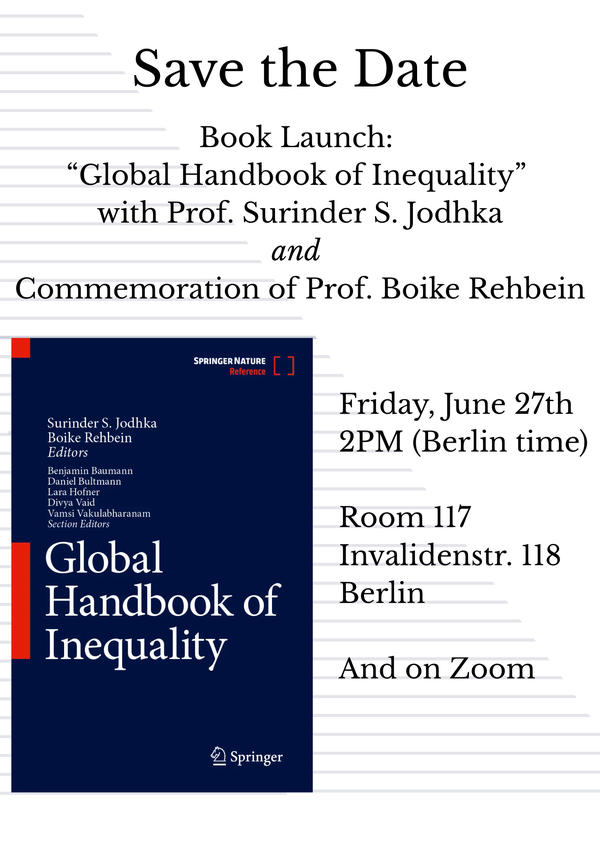HU Southeast Asian Societies and Cultures Lecture Series
Bleiben Sie auf dem Laufenden und tragen Sie sich in unsere Mailingliste ein! Senden Sie eine E-Mail mit einem leeren Textkörper und dem Betreff „subscribe seasocieties-iaaw Vorname Nachname“ an sympa@lists.hu-berlin.de.
Die Vorträge finden in der Regel am IAAW Invalidenstraße 118, Raum 117, statt. Es besteht auch die Möglichkeit, per Zoom an der Vorlesung teilzunehmen.
15. April, 14 Uhr. ONLINE
Book Launch: “Tuol Sleng Genocide Museum: A Multifaceted History of Khmer Rouge Crimes” with Stephanie Benzaquen-Gautier and Ann-Laure Porée.
5. Mai
Sirima Thongsawang (Chulalongkorn University):
“Urban conflict and resolution: Bangkok as the city of Anulom”
19. Mai
Simon Rowedder (Universität Passau):
“Yunnan as Inter-Asian Method – not quite ‘Chinese’, nor quite ‘Southeast Asian’”
26. Mai
Paul Christensen (Georg-August-Universität Göttingen):
“Living with Shifting Sands: Social and Spiritual Impacts of Sand Mining in Southeast Asia”
27. Mai DIENSTAG 18 Uhr
Andrew Mertha (Jons Hopkins University):
Book Talk – “Bad Lieutenants. The Khmer Rouge, United Front, and Class Struggle, 1970-1997”
6. Juni FREITAG 15 Uhr
Dr. Tue Trinh (Nationale Universität Hanoi):
Anredeformen im Vietnamesischen
[Forms of address in Vietnamese]
24. Juni (Dienstag) 18 Uhr
Veronika Radulovic
"Sicherheitsabstand. Vietnam. Kunst. Politik. Freundschaften. Eine Annäherung."
Ein Gesprächs/Vortrag von und mit Veronika Radulovic zur Entwicklung der vietnamesischen Kunst vor dem Hintergrund von Đổi mới
27. Juni (Freitag) 14 Uhr
Book Launch: “Global Handbook of Inequality” with Surinder Jodhka (Centre for the Study of Social Systems, Jawaharlal Nehru University)
Abstract:
This handbook provides the most up-to-date and comprehensive review of the literature on inequality. It provides comprehensive overviews of the main theoretical traditions, concepts, dimensions, methodologies and contemporary debates around inequality as well as outlines of the situation of inequality in the world regions. Each entry covers the most relevant literature on the respective topic and gives an introduction to the key discussions. This authoritative reference work includes contributions from established and upcoming scholars based all over the world, and is truly global in perspective. It serves as a first introduction to the study of a particular field or issue related to inequality. The distinctive aspect of this handbook is its emphasis on the lived realities of inequality, its relational and cultural aspects, as well as the economic and quantitative aspects.
This is a must-read reference volume for students, researchers and professionals interested in thistopic across the spectrum of the social sciences.

Place: Invalidenstr. 118, Room 117
Zoom-link:
https://hu-berlin.zoom-x.de/j/63474049302?pwd=7MMHXSmfy2zcCuayTpwJNzhzoQMy5v.1
Meeting-ID: 634 7404 9302
Passwort: 566404
30. Juni
Benjamin Baumann (Universität Heidelberg): "Matrifocality and ancestral cults in Thailand’s lower Northeast"
Abstract
The analytic concept ‘matrifocality’ looks back at a turbulent history in Anthropology. Mostly employed in Afro-Caribbean contexts to describe situations in which women as mothers are structurally, culturally and affectively central to the organization of social life, the concept was first embraced by feminist scholars only to become criticized as a heteronormative misconception by a later generation of critical anthropologists. Despite the ongoing controversy surrounding the concept in Anthropology, it was rarely utilized as a heuristic device to approach Southeast Asian social formations, in which women traditionally played important roles in the organization of social life. This is also true for Thailand, where a whole generation of Anthropologists used to frame local spirit mediumship and possession cults in terms of matrilineality and matrilocality. The concept ‘matrifocality’ was, however, rarely employed to classify the organizational logic of these societies. Notwithstanding this influential tradition in Northern Thai ethnography, questions for the structural place of women in local spirits cults and their relevance for the organization of social life are rarely addressed in contemporary anthropological texts. This paper seeks to reverse this trend by emphasizing the matrifocal organization of a localized ancestral cult in a predominantly Khmer-speaking province in Thailand’s lower Northeast. Based on 25 months of ethnographic fieldwork in a rural village in Buriram Province, the paper will detail a matrilineally transmitted ancestral cult, in which local matrilineages are reproduced through the veneration of ancestors that are imagined as elephant hunters. Although women are still the central nodes of these emplaced cults and female lay spirit mediums act as the main ritual officiants, the socio-economic transformations of local lifeworlds also affect the place of cis women in these cults, as more and more trans women become actively involved as professional spirit mediums. Will this transformation of local possession cults also affect the matrifocal organization of village life?
Benjamin Baumann is an assistant professor and coordinator of the international MA program 'Sociocultural Anthropology' at Heidelberg University's Institute of Anthropology. He studied Anthropology and Southeast Asian Studies and holds a PhD in Southeast Asian Studies from Humboldt-Universität zu Berlin. His ethnographic work examines rural lifeworlds, socio-cultural identities, and local language games in Thailand's lower Northeast, focusing on how the ghostly structures the imagination and reproduction of social collectives and communal sentiments of belonging.
Zoom-Meeting beitreten
https://hu-berlin.zoom-x.de/j/63868933349?pwd=iit1s0BKCtelOXMhaV3QZbHHir0eD5.1
Meeting-ID: 638 6893 3349
Passwort: 956048
7. Juli
Timothy Williams (Bundeswehr Universität München):
“‘The ghost of communism is alive and well.’ Consolidating power through memory.”

